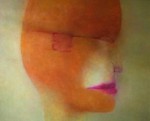
The Journal of Literature and Trauma Studies calls for submissions on literature and trauma in the context of North African and Middle Eastern literatures. These categories can be interpreted broadly both historically and linguistically.
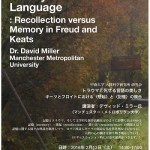
Dr David Miller, senior lecturer in English literature at MMU and General Editor of JLTS, will be giving a lecture at Konan University, Kobe, Japan on ‘Trauma and the Beauty of Dead Language: Recollection versus Memory in Freud and Keats’. The lecture follows his research on Keats' poetic comportment with what he called his ‘posthumous existence’.
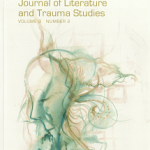
Investigations in Literature, Trauma, and Theory
From the Editor's Introduction:
"The articles presented here range from major reinterpretations of the seminal works of trauma and literature study to considerations of the demands of class on the major categories of trauma analysis, the role of figurative and poetic language in trauma testimony and theory, and the interlocking of hermeneutics, trauma theory, and theology. These articles mark both a return to primary ethical concerns and a renewed theoretical energy." (D. Miller)

International Conference - Call for Papers
11th & 12th March 2016 - University of Strathclyde, Glasgow
Trauma, just like other psychosomatic concepts in medical history such as shock and stress, has been subjected to a variety of interpretations across disciplines since it emerged in the nineteenth-century as a notion to capture certain psychological experiences and conditions in modern societies and cultures. Yet, it remains a highly contested term that has seen numerous redefinitions as its place in popular and medical discourse is continuingly under scrutiny.
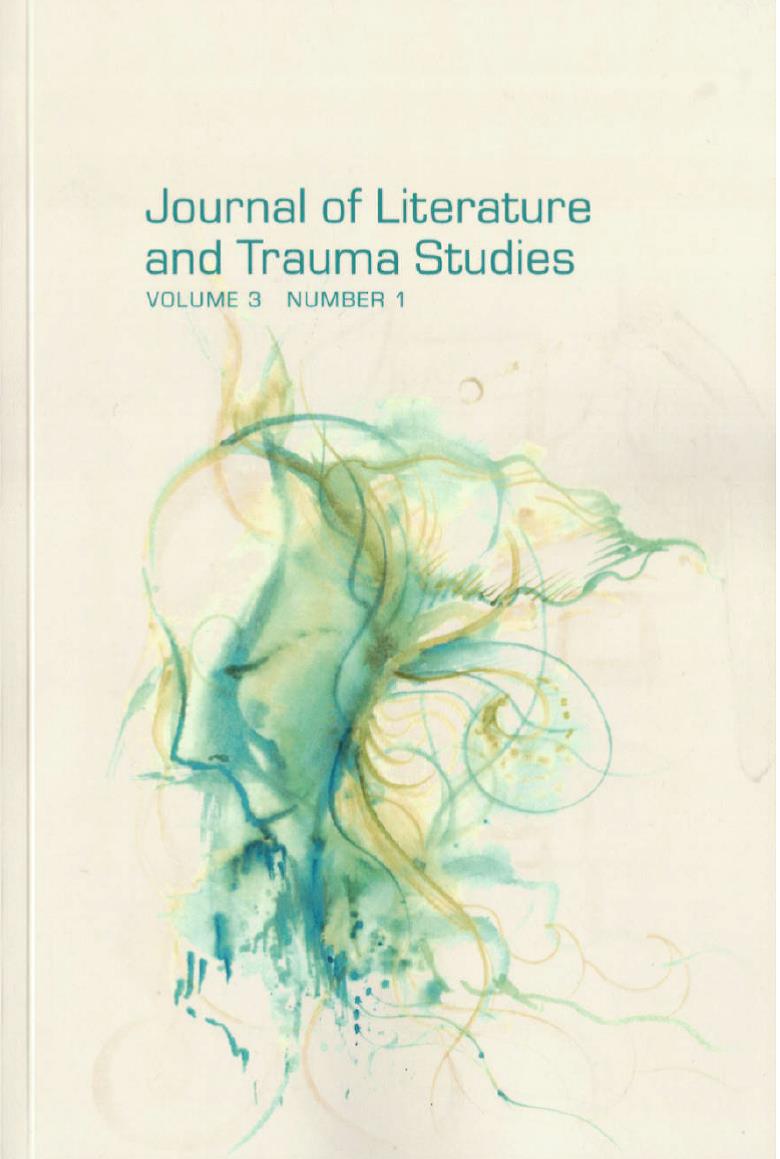
Literatures of the Aftermath
From the Editor's Introduction:
" The articles presented here deal with what may be termed 'the literatures of the aftermath' and therefore the interlocking problems of both personal remembrance and cultural memory that always occur in the “after” impact of the events. All the articles present here recognise the irreducible nature of traumatic events with the subsequent strivings of troubled memory and the demands of a damaged language." (D. Miller)

Suffering ion Literature
From the Editor's Introduction:
"The range and depth of subjects, the variation in theoretical approaches, and the international perspective raise some crucial questions and issues that the articles both evince and attempt to answer. Can the study of literature and trauma extend itself to such an extent and still retain the theoretical rigor and intellectual insight that it has so far maintained? Do we now see the beginnings of a divergence or contestation of theoretical approaches within the discipline, for example, between historical and social perspectives on the one hand and psychoanalytical and text-embedded approaches on the other? Are there serious differences, both at the level of theoretical assumption and at the level of chosen subject matter, in terms of a European approach to trauma and literature and those adopted in Asia, the Americas, Africa, the Middle East, and Australia? Can the age-old distinction between “experience” and “literature’ ever be truly put aside? The tripartite organization of this issue into interlocking but also distinctive subdivisions reflects these concerns and developments." (D. Miller)
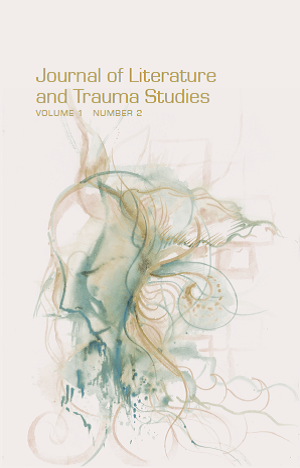
Contents
The Divided Legacy of the Republic of Letters: Emancipation and Trauma - Vladimir Biti
A Howl and a Black Cat: Allegory, Nonsense, and Ethics in Yann Martel's Beatrice and Virgil- Jenni Adams
"We Must Not Forget That There Was a Crime": Incest, Domestic Violence, and Textual Memory in the Novels of Iris Murdoch - Emma Miller
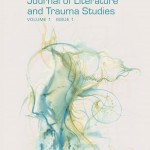
Tragedy and Trauma
From the Editor's Introduction:
"This first issue attempts to bring together some of the major ideas on the relationship of tragedy and trauma and at the same time examines the way literature has always attended to those “breathing spells” without which Adorno knew life would not be worth living. Although the emergence of trauma studies and the focus on the relationship of literature with testimony and memory is a modern and contemporary development, it is nonetheless clear that in one way or another, literature has always acted as the inscription of these essential human capabilities and experiences. This edition therefore moves historically as well as thematically and covers both the historical and experiential dimensions as they appear in the literary work of art." (D. Miller)